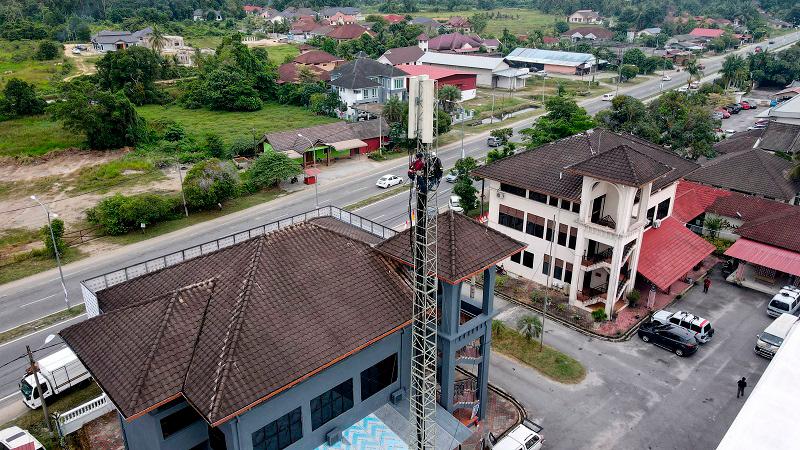KUALA LUMPUR: A total of 337 schools are still using 4G broadband or satellite technology, with a speed limit of up to 30 Mbps, despite the completion of the Point of Presence (PoP) project in these schools from April 2022 to November 2023.
According to the Auditor-General’s Report (LKAN) 2/2024, the review found that the percentage of schools using 4G broadband or satellite technology in each state ranged from 12.5 per cent to 91 per cent.
“Further review found that the Ministry of Education (MOE) is bound by an Internet Service Interim Package contract, effective from July 2022 until June 2024, and schools cannot make additional purchases of internet service subscriptions while the interim contract is still in effect.
“The feedback from MOE supports the PoP project and strives to utilise the existing PoP infrastructure. MOE also prioritises fibre technology if it is available in the school area,” said the report, presented in the Dewan Rakyat today.
Therefore, the report recommends that the Ministry of Communications coordinate with interested parties regarding internet subscriptions, especially with MOE, and that the implementation of the programme should be improved in PoP Phase 2.
The PoP project aims to bridge the digital divide in rural areas, by turning schools into fibre optic broadband infrastructure hubs, enabling schools, government premises, and surrounding residential areas to access high-speed broadband.
According to the report, as of Dec 31, 2023, 599 out of 630 Phase 1 PoP school projects (95 per cent) had been completed, while 31 projects (5 per cent) were still in progress.
“An audit review of the FOMIX Report and the telecommunications company’s report up to Dec 31, 2023, found that only two schools (one per cent) out of 599 have subscribed to the internet network from the PoP project, while the remaining 597 schools continue to subscribe to the internet under the MOE Internet Service Interim Package,” the report stated.
Additionally, LKAN recommended that the Ministry of Communications prepare a plan for the comprehensive use of broadband lines, to ensure that unsubscribed lines are utilised.
The report found that 27 out of 28 lines have remained unused and unsubscribed for six to 10 years, since project completion in 2013 and 2017, and one line since November 2023.
“The audit review found that the lack of subscription to the Broadband to General Population (BBGP) range impacts the government’s efforts to increase coverage and access to high-speed broadband, particularly for rural communities,” it said.









